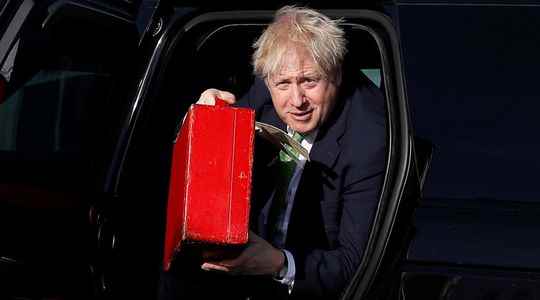To listen to the martial announcements of the government of Boris Johnson at the start of the war in Ukraine, one would have believed Great Britain to be at the world vanguard of sanctions against Russia. With a lot of superlatives, the Prime Minister had, drum beating, decreed the end of “Londongrad”, in other words of the hold of the Russian oligarchs on his country. But the one who still spent his holidays in November 2019 in the Tuscan castle of his friend the billionaire Evgeny Lebedev, owner of the newspapers The Independent and The Evening Standardis struggling to convince the British of his sincerity.
In November 2020, he even granted Lebedev, son of a former KGB agent who made his fortune thanks to Putin, the title of “Baron Lebedev” with a seat in the House of Lords. For journalist Paul Caruana Galizia, author of a long investigation into the relationship between the oligarchs and the Conservative Party, “this appointment was made” against the advice of the British intelligence services “.
Like Evgeny Lebedev, many Russian oligarchs and their children have British nationality, a significant factor in understanding their weight and influence within the British elite. The creation in 2008 by Tony Blair of “golden visas”, intended to attract investors, has benefited more than 700 Russian billionaires. In exchange for a minimum investment of 2.2 million euros in Great Britain, they received a residence permit opening the way to British citizenship after five years. Time quickly passed, when we know the taste of wealthy Russians for posh local private establishments, which give their offspring a perfect syntax and the accent of the royal family.
Basically, while foreigners are not allowed to donate to political parties in the UK, dual nationals can, and it is these Anglo-Russian oligarchs who have helped fund the Conservative Party in recent years. years, for an amount estimated at several million euros since Boris Johnson entered Downing Street in 2019. The largest donor being Lubov Tchernukhin, wife of a former Putin finance minister.
According to the NGO Transparency International UK, the properties acquired by relatives of Putin in Great Britain since 2016 amount to 2 billion euros. The influence of this oligarchy was even the subject of a parliamentary report in 2020. It is said that “the place of London offers an ideal mechanism for recycling illegal finances”, and that “Russian influence has become the new normal, and many close to Putin are very well integrated socially thanks to their wealth. This level of integration, especially in London, is so pervasive that the government can only try to limit their influence rather than to prevent”.
‘We need to target more of Putin’s allies’
Under public pressure, Boris Johnson decided to put an end to the golden visas, but only a handful of oligarchs had been sanctioned in early March. And those under sanctions and asset freezes have thirty days to make arrangements, in other words to transfer their assets elsewhere. “It’s totally counterproductive, the government is choosing to soften the blow it is supposed to deal,” said Nigel Kushner, director of law firm W Legal.
Roman Abramovich, owner of the famous Chelsea football club and close to the Kremlin, who was still not among the sanctioned a week after the start of the war, tried to parry the blows. The oligarch has said he wants to sell Chelsea and donate the funds to a charitable foundation… which has yet to be created. “The only thing we need to hear from Abramovich is this: ‘War is illegal. Putin, withdraw your troops from Ukraine immediately’,” Labor MP Chris Bryant said. Abramovich also hastily put two of his London properties on the market, including his 15-bedroom house, the former Soviet Embassy, acquired for 100 million euros.
Many Conservative MPs did not hide their frustration. “We need to target many more Putin allies who have, let’s be honest, bought their place in British society,” ex-BoJo Brexit minister David Davis slammed. “It’s worrying that the government is moving so slowly let its prey escape.” Criticized from all sides, the government assured on March 3 that it was working to expand the list of targeted Russians, and that they will pay dearly for the aggressiveness of their president.
